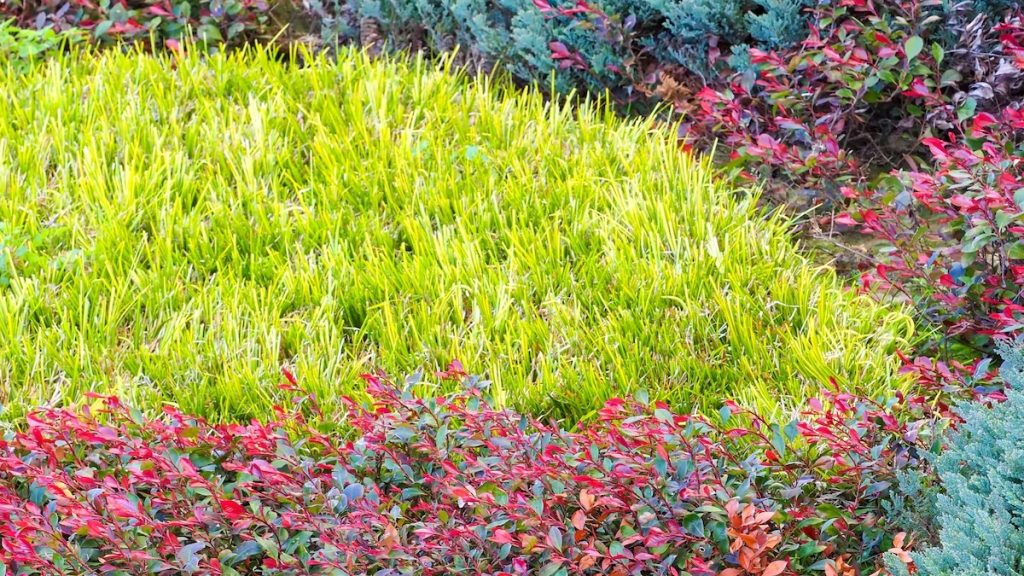Unveiling the Hidden Charms of Garden Shrubs: Ecological Superheroes

Unveiling Garden Shrubs Benefits
Garden shrubs, often overlooked in the realm of landscaping, possess an array of positive aspects that contribute to the overall ecological sustainability and visual allure of outdoor spaces. These versatile plants offer a myriad of benefits, from enhancing biodiversity to providing year-round interest in garden designs. The ecological impact and aesthetic appeal of garden shrubs make them indispensable elements in creating vibrant and sustainable landscapes.
Did You Know? Garden shrubs play a vital role in supporting local ecosystems by providing food and shelter for various wildlife species.
Now, let's move on to explore the versatile landscaping potential of these ecological superheroes.
Versatile Landscaping with Shrubs
Flexible Garden Design with Shrubs
Garden shrubs offer remarkable versatility in enhancing outdoor spaces and contributing to flexible garden design. Their unique characteristics make them valuable assets for creating visually appealing and sustainable landscapes.
- Enhancing Outdoor Spaces: Garden shrubs serve as essential elements in adding visual appeal and structure to outdoor landscapes. They can be strategically positioned to create focal points or act as backdrops for other garden features, such as flower beds or sculptures.
- Creating Privacy Screens and Defining Boundaries: Shrubs are an ideal choice for creating privacy screens, whether it's to shield a seating area from neighboring properties or to establish distinct zones within a garden. Additionally, they can be used to define garden boundaries, providing a natural and aesthetically pleasing alternative to traditional fencing.
Adaptable Landscaping Using Shrubs
The low maintenance nature of shrubs makes them an environmentally friendly option for sustainable landscaping practices.
- Minimal Upkeep: Shrubs require minimal maintenance, making them an attractive option for homeowners seeking a low-maintenance garden. Once established, they thrive with little intervention, reducing the need for excessive watering, fertilizing, and pruning.
- Contribution to Soil Conservation and Wildlife Habitat: The extensive root systems of shrubs help prevent soil erosion by stabilizing the ground and promoting water retention. Furthermore, their dense foliage provides habitat for various wildlife species such as birds and small mammals, contributing to the overall ecological balance of the garden ecosystem.
By integrating these versatile plants into outdoor spaces, homeowners can achieve both aesthetic appeal and ecological sustainability.
Ecological Impact of Shrubs
Oxygen Production and Carbon Sequestration
Garden shrubs play a crucial role in the production of oxygen, which is vital for sustaining life on Earth. Through the process of photosynthesis, shrubs absorb carbon dioxide from the atmosphere and release oxygen, contributing to cleaner air and a healthier environment. Additionally, shrubs have the remarkable ability to sequester carbon, effectively capturing and storing atmospheric carbon dioxide. This process aids in mitigating climate change by reducing the concentration of greenhouse gases in the atmosphere.
Biodiversity and Ecosystem Support
The presence of garden shrubs enhances biodiversity by providing essential food and shelter for a diverse range of wildlife species. Birds, small mammals, and insects find refuge and sustenance within the branches and foliage of shrubs, fostering a thriving ecosystem within garden landscapes. Furthermore, shrubs contribute to maintaining ecological balance by supporting pollinators such as bees and butterflies. These vital pollinators play a significant role in plant reproduction and the overall health of natural ecosystems.
Year-Round Appeal in Gardens
Seasonal Variations and Aesthetic Beauty
Garden shrubs contribute to the perpetual garden charm by offering seasonal variations and aesthetic beauty throughout the year. Their ability to bloom and change foliage with the seasons adds a dynamic visual interest to garden landscapes. The diverse colors, textures, and structures of shrubs create an ever-changing canvas that captivates the senses in every season.
Did You Know? The seasonal blooms of garden shrubs not only enhance the visual appeal of gardens but also attract pollinators, contributing to the overall health of the ecosystem.
Winter Interest and Evergreen Qualities
During colder months, evergreen shrubs play a pivotal role in maintaining the all-season garden attractiveness. Their enduring foliage provides a touch of color and vitality to winter landscapes, standing out amidst the dormant surroundings. Additionally, these resilient plants imbue the garden with a sense of continuity and structure, ensuring that it remains visually appealing even in the midst of winter's grasp.
Diverse Shrub Varieties
Flowering Shrubs and Fragrant Species
- Garden landscapes come alive with the vibrant hues and alluring fragrances of flowering shrubs. These diverse shrub varieties not only add a pop of color to outdoor spaces but also engage the senses, creating a captivating sensory experience for garden enthusiasts. The blossoms of flowering shrubs attract pollinators such as bees and butterflies, contributing to the vitality of the ecosystem.
Foliage Diversity and Texture
- Diverse foliage among shrub varieties introduces an array of textures and visual contrasts to garden designs. From delicate, lacy leaves to bold, broad foliage, each shrub species offers a unique contribution to the overall aesthetic appeal of the landscape. The varied leaf shapes, colors, and patterns ensure year-round visual interest, enriching the tapestry of the garden with their ever-changing display.
Did You Know? The diverse foliage and textures of shrubs provide nesting sites and refuge for small birds and beneficial insects, further enhancing the ecological significance of these versatile plants.
Exploring Garden Shrubs Benefits
Garden shrubs provide a wide array of advantages, contributing to the ecological sustainability and visual appeal of outdoor spaces. Their positive aspects extend from supporting biodiversity to offering year-round interest in garden designs. The benefits of garden shrubs encompass their role in enhancing local ecosystems, promoting soil conservation, and creating vibrant and sustainable landscapes. With their versatility and ecological significance, garden shrubs stand out as indispensable elements in modern landscaping practices.
Leave a Reply
You must be logged in to post a comment.